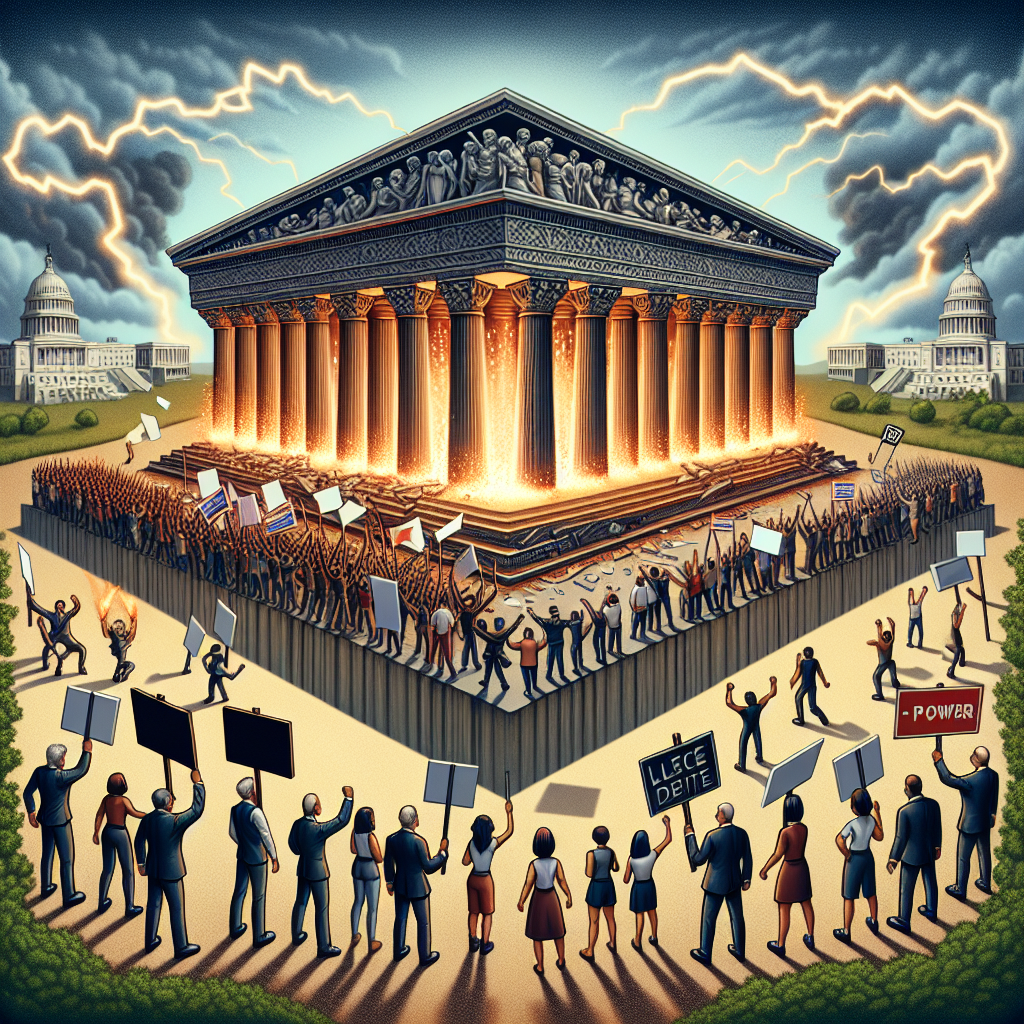In recent years, there has been a noteworthy shift in American society, particularly within the realm of conservatism. The Ron Paul movement, which sought a blend of traditional conservative values and Libertarian ideals, marked a pivotal moment in the political landscape, appealing to a sense of disenchantment with the longstanding dichotomy of Neo-Cons and Democrats. This movement sparked hope for a new era, providing a catalyst for what some now recognize as a conservative rebellion. Many conservatives now vehemently oppose Neo-Cons, viewing figures like Mitt Romney and Liz Cheney with disdain, indicating a growing fracture within traditional Republicanism. This environment has fostered a revived interest in conservative principles, including limited government, sound money, secure borders, and a rejection of progressive ideologies that have long been at odds with foundational conservative tenets.
The resurgence of these principles has faced significant obstacles over the decades, often branded as archaic or barbaric by establishment elites who benefit from the status quo. Yet, this current wave of conservatism appears to hold more potential than past movements that dwindled into obscurity, such as Barry Goldwater’s campaign in the 1960s. While some attribute the current state of affairs to Donald Trump’s influence, it is important to note that this conservative evolution was gaining momentum even before his rise to prominence. Trump’s role may be one of facilitator rather than originator, and his impending candidacy in 2024 raises questions about whether he can adequately represent the desires of his constituents while staying true to the values they seek to reinforce.
The dialogue within conservative circles has evolved, marked by a critical evaluation of candidates, including Trump himself. Unlike the unwavering support found in leftist factions, conservatives readily hold their leaders accountable, prioritizing policy over party allegiance. This breed of political engagement suggests a maturity among conservatives that diverges from the often unquestioning loyalty displayed by Democrats. The policies in question represent core beliefs for many conservatives, including stronger immigration policies and a reduction in government overreach. As the landscape shifts, it is evident that these principles are not merely fleeting ideals; they are increasingly seen as necessary responses to failed progressive policies rather than mere reactionary measures.
The growing anxiety among globalists and leftist elites points to a recognition of this conservative renaissance. Figures like Lynn de Rothschild and John Kerry have openly expressed concern over diminishing influence and the perceived threat posed by this new wave of conservatism. The dominance of previous ideological frameworks, such as Environmental, Social, and Governance (ESG) metrics, is receding, while notions of meritocracy and traditional values are making a notable comeback, particularly among younger generations. This cultural transformation extends beyond the surface, hinting at a fundamental realignment in collective societal values and priorities that may have lasting implications.
Despite these signs of progress, the potential for engineered crises to maintain the status quo remains high. Historical patterns suggest that when a significant ideological shift occurs, those in power often resort to manipulation and chaos as a means of regaining control. The possibility of destabilizing events surrounding the upcoming 2024 elections dwells in the minds of many commentators. Previous assassination attempts on Trump underscore the volatility of these turbulent times, and albeit the election appears to proceed as planned, skepticism abounds regarding whether external factors might still disrupt the political landscape. This reality raises concerns about the implications of a Trump victory, particularly with the inherited conflicts and economic challenges that are likely to accompany it.
While a Trump presidency may unearth suppressed economic realities under the Biden administration, it also ensnares the nation in ongoing geopolitical struggles, notably the situations in Ukraine and Israel. These conflicts are not without risks, as the potential for global escalations looms large. Opposition amid leftist activism has historically incited chaos, likely resulting in civil unrest if conservatives begin to assert their values more boldly. The fear exists not just of political backlash but of the moral implications of engaging in confrontational tactics similar to those attributed to their adversaries. The stakes are incredibly high, and this precarious moment in American politics requires vigilance and foresight among conservatives determined to maintain their footing in this ongoing ideological battle.
In conclusion, the shift towards a more robust conservative ethos indicates a profound upheaval in American political dynamics, transcending superficial party lines. With a rejuvenated focus on limited government and an adamant rejection of progressive overreach, conservatives are experiencing a renaissance underscored by a willingness to speak out and engage in critical dialogue. Nevertheless, the ever-present threat of backlash from the political left highlights the necessity of remaining vigilant. As this cultural awakening unfolds, conservatives must prepare for potential upheaval, recognizing that the fight for their values may require steadfast commitment and strategic resilience in an increasingly hostile environment. In sum, this transformative period invites both hope and caution as the future direction of American conservatism remains to be defined.

